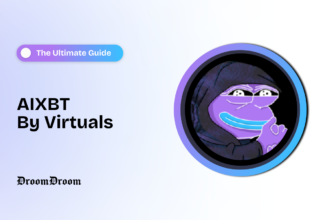The cryptocurrency industry has swept the globe. The euphoric bull markets and opportunities for retail investors to make a fortune in the space have brought the industry to the forefront of public attention. However, veering away from the market’s price movements and looking into blockchain, the technology that underpins cryptocurrencies like Bitcoin and Ethereum provides a wealth of information on its various use cases. The utility of blockchain technology is gaining traction among the masses, and its application in developing nations is being meticulously researched.
From financial inclusion to an anti-corruption tool, blockchain presents a unique window of opportunity for developing countries to leapfrog traditional systems and drive economic growth.
The Utility of Blockchain Technology
At its core, blockchain technology is a digitalized, decentralized, and distributed public ledger or database that is shared among the nodes of a computer network. Blockchain technology is unique in that it ensures the fidelity and security of data or records and generates trust without needing an intermediary or third party. In addition, blockchain technology’s decentralized and transparent nature makes conducting transactions and exchanging information immutable. In other words, with no single point of failure with a sole authority responsible for maintaining a database for information exchange, records of transactions cannot be altered, deleted, or destroyed.
The terms blockchain technology and cryptocurrency are frequently used interchangeably. While the inception of Bitcoin popularized blockchain, its utility as a technology extends beyond cryptocurrency applications. Blockchain technology is not limited to the financial sector. Due to its immutable record-keeping functionality, the technology provides numerous solutions to a wide range of real-world applications such as supply chain management, health care documentation, identity management, real estate records, etc. As a result of the technology’s ability to revolutionize several industries, it is often labeled as a disruptive innovation.
Blockchain technology’s utility and potential extend far beyond simply enhancing the efficiency of digital payments through cryptocurrencies. If implemented, it has the potential to completely transform the developing world’s financial sector, which has been plagued by difficulties.
Perhaps the true power of blockchain lies in its ability to act as a catalyst for societal change.
— Pratham (@Prathkum) December 15, 2022The Prosperity Paradox in Developing Economies
The internet is stepping into a new era, one that will offer individuals another chance to build a prosperous world. While prosperity is a relative concept, it primarily refers to one’s standard of living. To acquire it, people must have the means, tools, and opportunities to create material wealth and thrive economically.
To reach a level of prosperity, access to essential financial services to reliably store and move value is critical. Furthermore, communication and tools to connect to the global economy, security, protection, and enforcement of title to land and other legally owned assets are essential.
Unfortunately, only a portion of the world today has this luxury. Banks, credit cards, and ATMs are instruments many take for granted. Even in situations of financial difficulty, individuals often have the wherewithal to get by thanks to a complex system of banking and loans. However, in many regions of the world, this is not the case.
The World Bank estimates that 1.4 billion people, or nearly 21% of all adults, are unbanked. According to reports, the figure in some developing nations can reach over 70%. Women are considerably worse off, accounting for 54% of the unbanked. Financial identity is the foundation for a wide range of financial and economic options; a lack of this identification has negative consequences, keeping most people in an unbreakable cycle of poverty and increasing the hardship for promising entrepreneurs.


Financial Inclusion through Blockchain
A significant issue and barrier that many people face when trying to gain access to the banking system is a lack of formal identification. For instance, opportunities for the unbanked populace to build a credit history to help them qualify for any type of loan is severely restricted without valid IDs. Without lending and the wealth that it can effectively generate through production, unbanked citizens have very few options for breaking free from debt cycles and, as a result, poverty. In addition, the unbanked cannot engage in or keep up with societal modernization as services migrate away from reliance on cash and toward entirely digital and paperless systems.
The interconnected digital network of today’s economic environment requires people to have bank accounts to send and receive payments both domestically and internationally. Widely used payment services like Google Pay and Paypal remain incompatible with the unbanked populace, while those that are, such as Western Union and MoneyGram, are exorbitantly expensive with lengthy processing periods.
However, with the advent of blockchain technology, the unbanked now have access to digital payments without the need for bank accounts while also replacing the remittance rip-off with a new global platform for value exchange that is faster and cheaper to process, with no risk of censorship or privacy breaches.
Additionally, blockchain technology enables financial inclusion for all by eliminating the point-of-access barrier. An individual with an internet connection on a mobile device can access assets for the purpose of value exchange (assets can range from the smallest possessions that could be sold for a valuation) with no forms to fill out, irrespective of the individual’s literacy levels.
Blockchain as an Anti-corruption Tool
Corruption has long been a serious issue in developing countries, impeding their progress and development. Whether it is squandering funds, indulging in illicit activity, or even counting illegitimate voters, the corrupt practices that underpin many nations’ operations stifle healthy economic and political development. Law-abiding citizens are often victims of corrupt corporate systems filled with centralized intermediaries.
Blockchain’s use case in the realm of anti-corruption is a particularly intriguing situation to examine. Corruption is highly linked to secrecy and manipulation of results. Blockchain, on the other hand, gives immutability and transparency. Furthermore, corruption is linked to power concentration and abuse. Blockchain adds new aspects to power decentralization.
In this regard, blockchain technology, as an immutable and visible database of the flow of funds, obligates governments to behave with integrity and honor their commitments. Moreover, individuals will be able to see wrongdoings in real-time and hold them accountable if this does not happen. Therefore, blockchain technology has the potential to increase transparency and confidence in public administration and governance.
Moving Away from an Exclusive Internet
The Internet, World Wide Web, social media, mobile computing, Big Data, and the cloud have all enabled advances in almost every aspect of life, bridging the time and distance gap between people worldwide. Therefore, the internet as we know it today is not obsolete.
The internet today, however, is incomplete. When it comes to the economy, the digital revolution has had an adverse impact on the prosperity of many people. There is genuine creation taking place, but social inequality remains prevelant. The corporation, capitalism’s fundamental institution, has remained essentially unchanged. Hierarchy, vertical integration, and bureaucracy remain hallmarks of the industrial age. The internet was introduced into this economy, one of concentrated power structures with a skewed ability to exploit it for their own ends. Wealth, prosperity, and freedom may have arrived, but only for a privileged few.
There is no economic layer in the current version of the internet. Individuals seek validation from third-party actors, such as banks or the government, to establish each other’s identities or trust each other to transact. This makes it possible for people to commit fraud, collect our data and invade individuals’ privacy.
This is where blockchain technology plays a vital role. Blockchain allows people from all walks of life to participate in the global financial system without prejudice. It also allows individuals to map their own path to prosperity, bringing billions of thriving entrepreneurs to the fore and potentially opening the world’s largest untapped pool of human capital.
Conclusion
The brilliance of blockchain is that it appears to turn concepts that looked inconceivable a generation ago into entirely sensible ones. Blockchain represents a nascent disruptive technology with enormous potential to revolutionize the finance world as we know it and societal interactions as a whole.




















